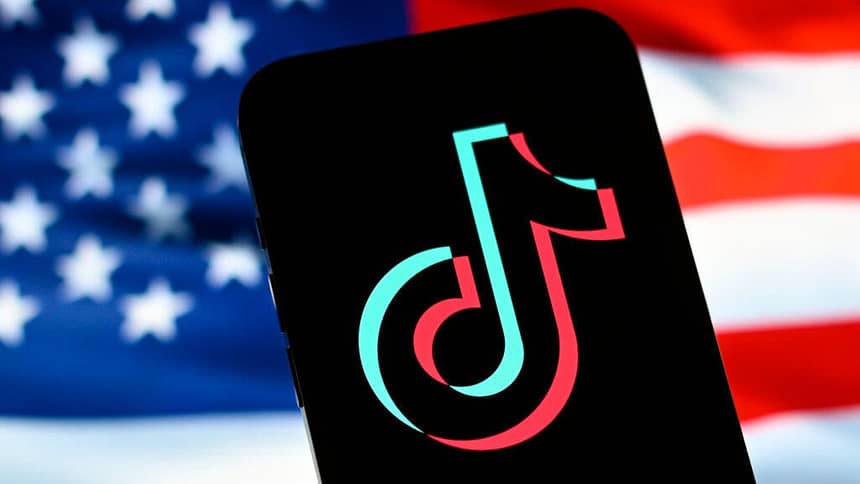President Donald Trump is giving TikTok more time to sell its US operations, saying that “tremendous progress” has been made toward a deal and pushing off enforcement of a ban that was set to kick in Saturday.
In a Friday afternoon Truth Social post, Trump said that despite that progress, the deal still needs more work, so he’s signing an executive order giving TikTok 75 more days, taking the deadline out to June 19. The move prevents the wildly popular video app from potentially going dark in less than a day.
Trump went on to say that his administration will continue to work with China and credited the tariffs he enacted earlier this week, calling them “the most powerful economic tool” and “very important” to national security.
“We do not want TikTok to ‘go dark,'” Trump said in his post. “We look forward to working with TikTok and China to close the Deal.”
Both TikTok and the Chinese government have long opposed a sale of the company’s US operations and it remains unclear as to if their positions have changed. TikTok didn’t immediately return an email seeking comment.
Read more: TikTok Backups: 6 Similar Apps for Your Daily Dose of Fun
China on Friday reacted to the tariffs Trump spoke of by matching them with its own on US goods, escalating the trade war between the two countries and sending stock markets around the world tumbling. The Dow Jones Industrial Average plunged more than 2,200 points and the Nasdaq composite lost 5.8% in afternoon trading — its biggest drop in five years.
The TikTok ban delay wasn’t unexpected. Several potential bidders for TikTok’s US operations have made their interest known in just the past few days, and Trump has been meeting with administration officials this week to discuss possible deals and ownership structures.
According to recent reporting by The New York Times, one plan included private equity firm Blackstone and the tech company Oracle, while another involved a last-minute bid from Amazon.
Lawmakers in both political parties have long voiced concerns that TikTok could be a threat to national security and could be used by the Chinese government to spy on Americans or spread disinformation to further China’s agenda. TikTok continues to deny those accusations.
The law requiring the sale was passed by Congress last year with overwhelming bipartisan support and signed into law by then-President Joe Biden. Free speech and other groups sued to overturn the law on First Amendment grounds, but it was upheld by the US Supreme Court in January.
So what’s next for TikTok? Here’s what you need to know.
Watch this: US vs. TikTok: What Happens Next
What does the law do?
The law aims to force TikTok’s China-based parent company, ByteDance, to sell to a buyer American officials are OK with and guarantee that ByteDance no longer has access to US user data or control over the TikTok algorithm.
TikTok was given nine months to comply, hence the original Jan. 19 sale deadline, at which point the government could require the removal of its app from US app stores and that other tech companies stop supporting the app and website.
TikTok shut down in the US the night of Jan. 18, citing the ban, but came back online the next morning after Trump made assurances that he would not immediately enforce it. Trump later formalized that promise by signing an executive order that directed the attorney general to not enforce the ban for 75 days, effectively moving the deadline to April 5.
The new executive order pushes the deadline back to June 19, which is Juneteenth, a federal holiday.
Read more: TikTok Loves to Give Financial Advice. But Don’t Believe Everything You Hear
What’s Trump’s take?
After originally calling for a ban during his first presidency, Trump said during the 2024 campaign that he wasn’t in favor of one and pledged to “save TikTok,” though he didn’t specify how he’d do that.
Trump told the press on Sunday that “there’s tremendous interest in TikTok.” He added that he would “like to see TikTok remain alive.” The president also said that “we have a lot of potential buyers” and that his administration is “dealing with China,” which has long opposed a sale.
On March 26, Trump said he would consider lowering tariffs on Chinese goods if that country’s government approved a sale of TikTok’s US operations. He also at that time reiterated his willingness to push the deadline back if needed.
Trump also has floated the idea of the US taking a 50% stake in the company as part of a joint venture, but hasn’t given specifics as to how that would work.
TikTok CEO Shou Chew was one of several high-profile tech executives to attend Trump’s inauguration in January, just hours before Trump would sign the order granting the 75-day extension.
Previous to that, during a press conference in December, Trump pointed to the role TikTok played during the election, crediting it with helping him pick up the votes of young people.
“TikTok had an impact, and so we’re taking a look at it,” Trump said. “I have a little bit of a warm spot in my heart. I’ll be honest.”





